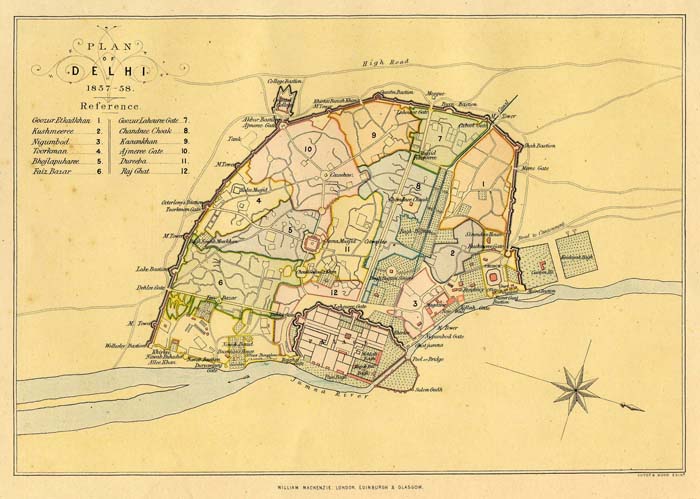FWP:
SETS == WORDPLAY
ROAD: {10,12}
SOUND EFFECTS: {26,7}
We have to wait until Faruqi's commentary to encounter even a mention of the conspicuous wordplay between jaanaa and jaantaa , despite the fact that these verbs are so prominent, and are linked more closely than just by sound, as Faruqi points out.
Other sounds effects haunt this verse as well, to an unusual degree. Of the twelve vowels in the first line, ten of them are short or long alif sounds. Then there are the mutually echoing pa;Raa and par , and the other re sounds: dar , hazaar , baar , tire , rah-guzar . The effect is rhythmic and stark, curtailing the phonetic range the way the lover's movements are curtailed. An especially good effect is created by dar par hazaar baar , with its two rhyming sets-- and with its first and last words subliminally forming darbaar , which has among its meanings 'house, dwelling' (Platts p.510).
In fact the wordplay feels like the chief pleasure, the focal point, of the verse. Speculating about why exactly the lover has to go by the Rival's door is not very thrilling; it cannot hold the attention for very long. Things would be different if the question were a more compelling one, or even offered some rewards in the form of wit or irony or an unexpected punch. But as far as I can see-- no such luck. None of Faruqi's theorized explanations really strikes much of a spark. The moral is that a verse can be open-ended without being truly exciting. (We Ghalibians are a tough crowd, and it's Ghalib who has made us so.)
In the previous verse, {99,2}, the lover can't find the beloved's house; in this verse, he knows all too well how to find her.

Nazm:
He was forced to go to the Rival's door because the beloved's comings and goings were in that very one's house. (103)
== Nazm page 103